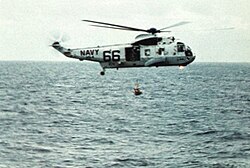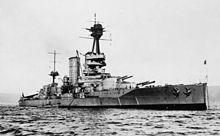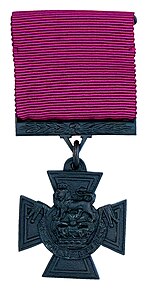Portal:History
The History Portal

History by Frederick Dielman
History is the systematic study of the past, focusing primarily on the human past. As an academic discipline, it analyzes and interprets evidence to construct narratives about what happened and explain why it happened. Some theorists categorize history as a social science, while others see it as part of the humanities or consider it a hybrid discipline. Similar debates surround the purpose of history—for example, whether its main aim is theoretical, to uncover the truth, or practical, to learn lessons from the past. In a more general sense, the term history refers not to an academic field but to the past itself, times in the past, or to individual texts about the past.
Historical research relies on primary and secondary sources to reconstruct past events and validate interpretations. Source criticism is used to evaluate these sources, assessing their authenticity, content, and reliability. Historians integrate the perspectives of several individual sources to develop a coherent narrative. Different schools of thought, such as positivism, the Annales school, Marxism, and postmodernism, have distinct methodological approaches.
History is a broad discipline encompassing many branches. Some focus on specific time periods, such as ancient history, while others concentrate on particular geographic regions, such as the history of Africa. Thematic categorizations include political history, military history, social history, and economic history. Branches associated with specific research methods and sources include quantitative history, comparative history, and oral history.
History emerged as a field of inquiry in antiquity to replace myth-infused narratives, with influential early traditions originating in Greece, China, and later in the Islamic world. Historical writing evolved throughout the ages and became increasingly professional, particularly during the 19th century, when a rigorous methodology and various academic institutions were established. History is related to many fields, including historiography, philosophy, education, and politics. (Full article...)
Featured picture
Did you know (auto generated)

- ... that American Colossus is a biography of a man who was "the most famous sportsman in the world" and "the most forgotten great athlete in American history"?
- ... that at over 400 pounds (180 kg), Desmond Watson is one of the largest players in NCAA Division I football history?
- ... that the first Russian feature film, Stenka Razin, depicts the historical Cossack leader throwing a princess into the Volga?
- ... that Montenegrin historian Radoje Pajović refused to engage in historical revisionism to rehabilitate Chetniks who collaborated with the Axis powers?
- ... that a historian lamented the lack of English-language translations for the work of Aracy Amaral despite it being "a vital reference for the study of art history in Brazil"?
- ... that the first game in Georgetown football history was never played?
Thomas the Slav (Greek: Θωμᾶς, romanized: Thōmas, c. 760 – October 823) was a 9th-century Byzantine military commander, most notable for leading a wide-scale revolt in 821–23 against Emperor Michael II the Amorian (r. 820–829).
An army officer of Slavic origin from the Pontus region (now north-eastern Turkey), Thomas rose to prominence, along with the future emperors Michael II and Leo V the Armenian (r. 813–820), under the protection of general Bardanes Tourkos. After Bardanes' failed rebellion in 803, Thomas fell into obscurity until Leo V's rise to the throne, when Thomas was raised to a senior military command in central Asia Minor. After the murder of Leo and usurpation of the throne by Michael the Amorian, Thomas revolted, claiming the throne for himself. Thomas quickly secured support from most of the themes (provinces) and troops in Asia Minor, defeated Michael's initial counter-attack and concluded an alliance with the Abbasid Caliphate. After winning over the maritime themes and their ships as well, he crossed with his army to Europe and laid siege to Constantinople. The imperial capital withstood Thomas's attacks by land and sea, while Michael II called for help from the Bulgarian Khan Omurtag. Omurtag attacked Thomas's army, but although repelled, the Bulgarians inflicted heavy casualties on Thomas's men, who broke and fled when Michael took to the field a few months later. Thomas and his supporters sought refuge in Arcadiopolis, where he was soon blockaded by Michael's troops. In the end, Thomas's supporters surrendered him in exchange for a pardon, and he was executed. (Full article...)
On this day
April 1: April Fools' Day; Iranian Islamic Republic Day (1979)
- 1871 – The Duke of Buckingham (pictured) opened the first section of the Brill Tramway, a short railway line to transport goods between his lands and the national rail network.
- 1952 – Israel enacted a citizenship law, prior to which the country technically had no citizens.
- 1969 – The Hawker Siddeley Harrier, the first operational fighter aircraft with V/STOL capabilities, entered service with the Royal Air Force.
- 2001 – Same-sex marriage in the Netherlands was legalized, making it the first country to do so.
- Aimery of Cyprus (d. 1205)
- Sophie Germain (b. 1776)
- Shivakumara Swami (b. 1907)
- Scott Joplin (d. 1917)
Selected quote
What transforms this world is — knowledge. Do you see what I mean? Nothing else can change anything in this world.
— Yukio Mishima, Japanese author
Related portals
More Did you know...
- ... that Giovanni de Ventura, a plague doctor who may have worn a beak doctor costume (pictured), was restricted by a covenant to treat only infectious patients? In the nose of the mask, there were types of plants that were used to filter the sickness from the wearer.
- ... that in some archaic Greek alphabets, an Ε could look like a Β, a Β like a C, a Γ like an Ι, an Ι like a Σ, or a Σ like an Μ?
- ... that the Chinese government has published a list of sixty-four important cultural relics that are forbidden to be exhibited outside of China?
- ... that the 1886 novel Albertine expedited the abolition of public prostitution in Norway?
- ... that Carl Sagan worked with the US Air Force on detonating a nuclear device on the Moon?
- ... that Olympic gold medals have been made out of silver, jade, and glass?
- ... that in 1945 a Japanese battalion was rearmed to serve alongside the British 5th Parachute Brigade in the Far East?
- ... that Solomon was accidentally castrated as an infant?
Topics
Categories

History • By period • By region • By topic • By ethnic group • Historiography • Archaeology • Books • Maps • Images • Magazines • Organizations • Fictional • Museums • Pseudohistory • Stubs • Timelines • Chronology • People • Wikipedia historians
WikiProjects
![]() WikiProject History •
Ancient Near East • Australian History • Classical Greece and Rome • Dacia • Former countries • History of Canada • Chinese history • European history • Heraldry and vexillology • Indian history • Jewish history • Medieval Scotland • Mesoamerica • Military history • Middle Ages • History of Science
WikiProject History •
Ancient Near East • Australian History • Classical Greece and Rome • Dacia • Former countries • History of Canada • Chinese history • European history • Heraldry and vexillology • Indian history • Jewish history • Medieval Scotland • Mesoamerica • Military history • Middle Ages • History of Science
WikiProject Time • Days of the Year • Years
WikiProject Biography • Composers • Political figures • Saints • United States Presidents
Things you can do
 |
Here are some tasks awaiting attention:
|
Associated Wikimedia
The following Wikimedia Foundation sister projects provide more on this subject:
-
Commons
Free media repository -
Wikibooks
Free textbooks and manuals -
Wikidata
Free knowledge base -
Wikinews
Free-content news -
Wikiquote
Collection of quotations -
Wikisource
Free-content library -
Wikiversity
Free learning tools -
Wiktionary
Dictionary and thesaurus





















































